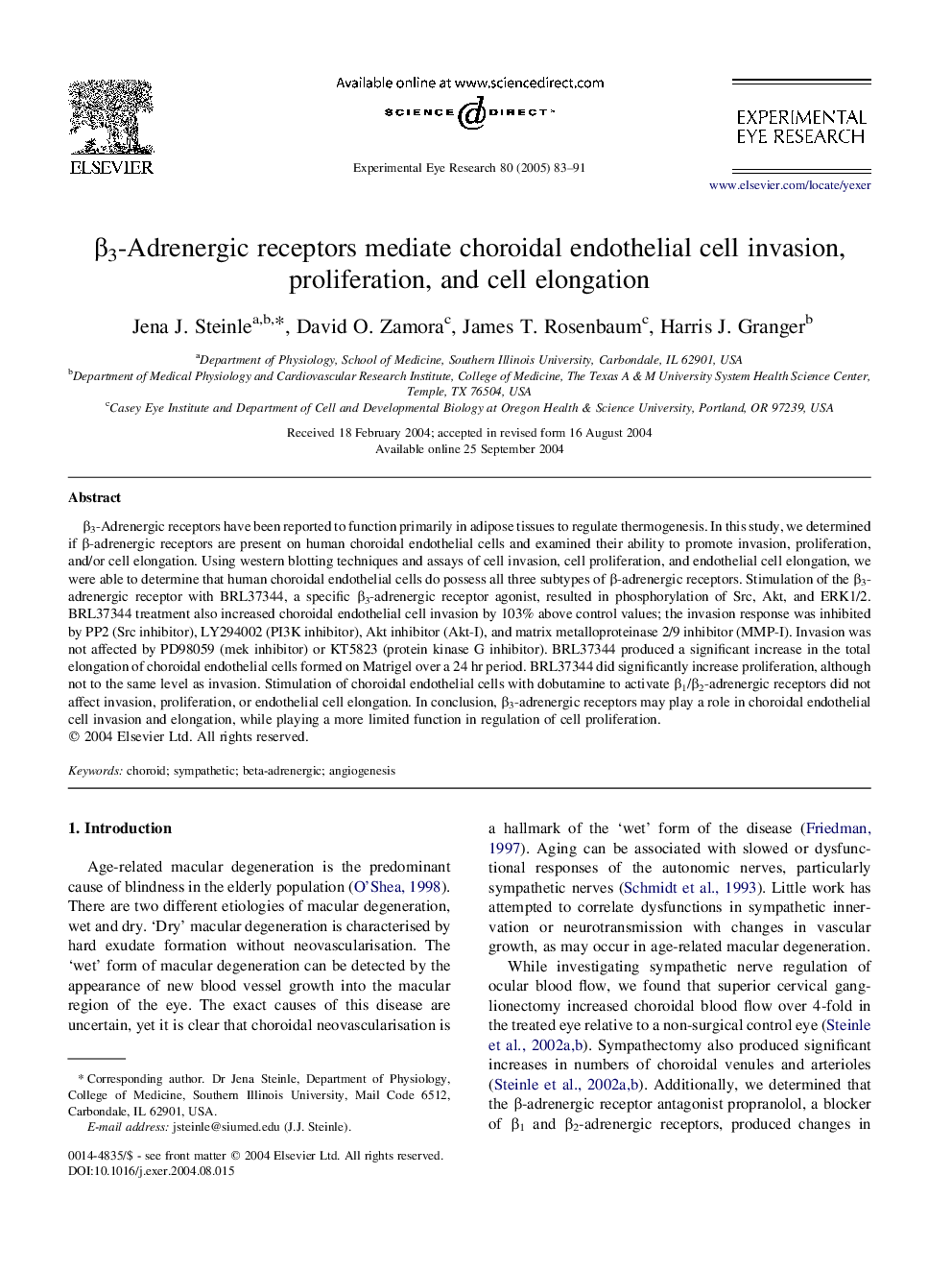| Article ID | Journal | Published Year | Pages | File Type |
|---|---|---|---|---|
| 9341590 | Experimental Eye Research | 2005 | 9 Pages |
Abstract
β3-Adrenergic receptors have been reported to function primarily in adipose tissues to regulate thermogenesis. In this study, we determined if β-adrenergic receptors are present on human choroidal endothelial cells and examined their ability to promote invasion, proliferation, and/or cell elongation. Using western blotting techniques and assays of cell invasion, cell proliferation, and endothelial cell elongation, we were able to determine that human choroidal endothelial cells do possess all three subtypes of β-adrenergic receptors. Stimulation of the β3-adrenergic receptor with BRL37344, a specific β3-adrenergic receptor agonist, resulted in phosphorylation of Src, Akt, and ERK1/2. BRL37344 treatment also increased choroidal endothelial cell invasion by 103% above control values; the invasion response was inhibited by PP2 (Src inhibitor), LY294002 (PI3K inhibitor), Akt inhibitor (Akt-I), and matrix metalloproteinase 2/9 inhibitor (MMP-I). Invasion was not affected by PD98059 (mek inhibitor) or KT5823 (protein kinase G inhibitor). BRL37344 produced a significant increase in the total elongation of choroidal endothelial cells formed on Matrigel over a 24 hr period. BRL37344 did significantly increase proliferation, although not to the same level as invasion. Stimulation of choroidal endothelial cells with dobutamine to activate β1/β2-adrenergic receptors did not affect invasion, proliferation, or endothelial cell elongation. In conclusion, β3-adrenergic receptors may play a role in choroidal endothelial cell invasion and elongation, while playing a more limited function in regulation of cell proliferation.
Related Topics
Life Sciences
Immunology and Microbiology
Immunology and Microbiology (General)
Authors
Jena J. Steinle, David O. Zamora, James T. Rosenbaum, Harris J. Granger,
